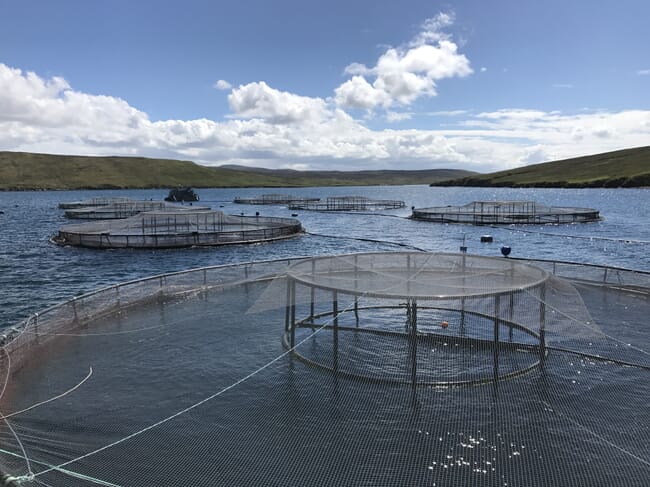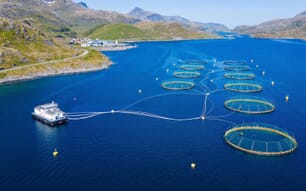The long term impact of the pandemic is not yet known, but several key salmon producers, including SalMar, have recently rescinded plans to award their shareholders dividends due to concerns over the financial implications of the outbreak.

However, Grieg Seafood - which is one of the largest salmon producers in the world, with operations in Norway, Scotland and Canada, remains cautiously optimistic.
“So far, the salmon is harvested according to plan, and we will work relentlessly to keep our harvesting schedule also in the coming time,” the company states.
Demand
Grieg notes that the overall demand for salmon is holding up, with a significant decreased demand from hotel, restaurants and catering being balanced out by an increased demand from retail.
In terms of transport, the flow of goods between countries on trucks remains relatively good and there are currently no border restrictions on food items, including salmon. Airfreight, on the other hand, is a challenge and the industry is working hard to find alternative transportation solutions. With farming operations located in close proximity to both the European and the US market, Grieg Seafood's dependence on cross-Atlantic distribution is limited.
Political support
As a food commodity, the continuous production and supply of salmon is being encouraged and Grieg notes that, in Norway, the salmon farming industry is recognised as a "critical public function", where upholding production is a governmental priority. The company is also maintaining a good dialogue with the authorities in Norway, the UK and Canada through industry organisations, discussing possible arrangements to safeguard salmon farming operations in various scenarios, such as flexibility on maximum allowed biomass (MAB) and fallow periods.
On a broader scale, initiatives implemented by authorities to avoid contamination in the general population reduce the risk of supply chain disturbances.
In terms of its workforce the statement explains that the company has implemented measures to limit contamination, with crises management teams operating in the head office and in each region. The regions have conducted local risk assessments and implemented measures accordingly, such as limiting contact between shifts, hygiene measures and home office where possible. Companies in Grieg’s supply chain have also implemented measures to avoid contamination and keep operations running safely.
Looking ahead
Grieg Seafood had forecast a total harvest of 100,000 tonnes of salmon for the year.
“The full medium- and long-term implications of the coronavirus pandemic remain uncertain. However, based on the current situation, the company will harvest according to the Q1 guiding of 16,800 tonnes, and the company's volume target for 2020 remains in place,” they conclude.


